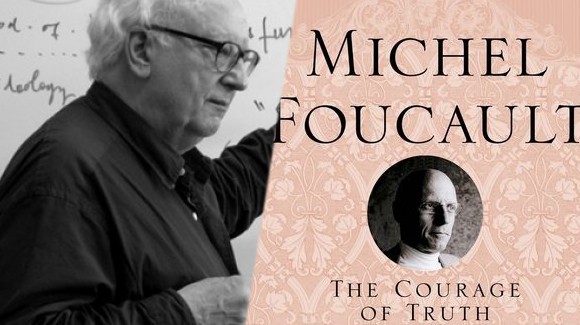
Thinking with Balibar // Minds in Migration: Whistleblowing and Self-Censorship
Arte Institute supports and suggests “Thinking with Balibar” and “Minds in Migration: Whistleblowing and Self-Censorship” by Diogo Sardinha, Chair of the Collège International de Philosophie in Paris.
Thinking with Balibar
Thursday, November 13, 2014 – Friday, November 14, 2014 2:00pm
East Gallery, Buell Hall (Maison Francaise)
This conference on “Thinking with Balibar” will explore the influence of Etienne Balibar’s work, not paying tribute to Étienne Balibar per se, but showing how certain concepts, arguments, and methods that he applies in his work can be and are being used by scholars in different fields working on crucial issues of our time. The conference will thus be inspired by his work instead of being on is work. It marks the third and last year of Étienne Balibar’s stint as a Visiting Professor at Columbia in the Institute for Comparative Literature and Society and Department of French. He will also be speaking at the conference.
This conference follows and builds on a one-day workshop called “Pourquoi Balibar” that was organized in Paris on January 17, 2014 by the Collège International de Philosophie (Étienne Balibar is a member of its Scientific Board) after he published several important books in recent years – Violence et civilité and La Proposition de l’égaliberté in 2011 (the latter now translated as Equaliberty: Political Essays), Citoyen sujet et autres essais d’anthropologie philosophique in 2011, and Saeculum: culture, religion, idéologie in 2011. This conference will further develop these analyses, bringing together some of the participants from the Paris meeting with other scholars working in the U.S.
__________________________
Minds in Migration: Whistleblowing and Self-Censorship
November 18, 2014 | 7 pm
Albertine Books in French and English
972 Fifth Avenue, NY
Non-fiction books, recently translated from French, will serve as a starting point to explore crucial issues such as conflicts and reconciliations, untranslatables, whistleblowing and self-censorship, environmental threats, capitalism and dialogue between religions. Philosophers, novelists, artists, social and political scientists, translators, journalists and movie directors alike will join the conversation and shed light on questions raised by these works.
The debates should not only prove to be great food-for-thought, but hopefully also efficient tools of empowerment.
A discussion about Michel Foucault’s The Courage of Truth (transl. Graham Burchell, Palgrave Macmillan, 2011)
In his last course at the Collège de France, Michel Foucault investigated the function of ‘truth telling’ in politics. In view of sobering revelations such as the Snowden affair, panelists will delve into the subject of self-restraint as contrasted with the risks taken by whistleblowers.
With DIDIER FASSIN (Professor of Social Science, Institute for Advanced Study, Princeton) ANN STOLER (Professor of Anthropology and Historical Studies, New School for Social Research) DIOGO SARDINHA (Chair, Collège International de Philosophie)
Moderated by ERIC BANKS (Director of the New York Institute for the Humanities)
In partnership with the Institute for Public Knowledge and the New York Institute for the Humanities.
Diogo Sardinha is the Chair of the Collège International de Philosophie in Paris, where he also heads the research program “Violence and Politics” (2010-2016). He studied philosophy in Lisbon and at Paris-Nanterre University before continuing his research in São Paulo and Berlin. He has published L’Emancipation de Kant à Deleuze (Hermann, 2013) and Ordre et Temps dans la Philosophie de Foucault (L’Harmattan, 2011). In 2013, he was a Visiting Scholar at the Institute for Comparative Literature and Society, Columbia University.
Eric Banks is a writer and editor based in New York. A former senior editor of Artforum, Banks relaunched Bookforum in 2003 and was editor in chief until 2008. Banks’s writing has appeared in Bookforum, the New York Times Book Review, theFinancial Times, Slate, the Wall Street Journal, Aperture… From 2011 to 2013, he served as president of the National Book Critics Circle. He is a two-term member of the NBCC board of directors and chair of its award committees on Biography and Criticism. He is researching a book about the life and afterlife of Renaissance writer, doctor, and savant François Rabelais.
Didier Fassin is an anthropologist and a sociologist who has conducted fieldwork in Senegal, Ecuador, South Africa, and France. Trained as a physician in internal medicine and public health, he dedicated his early research to medical anthropology. More recently, he has developed the field of critical moral anthropology. He is currently conducting an ethnography of the state, through a study of police, justice, and prison, and analyzes the possible contribution of the social sciences to a public debate regarding security, punishment, and inequality. His recent books include The Empire of Trauma: An Inquiry Into the Condition of Victimhood (2009),Humanitarian Reason: A Moral History of the Present (2011),Enforcing Order: An Ethnography of Urban Policing (2013).

